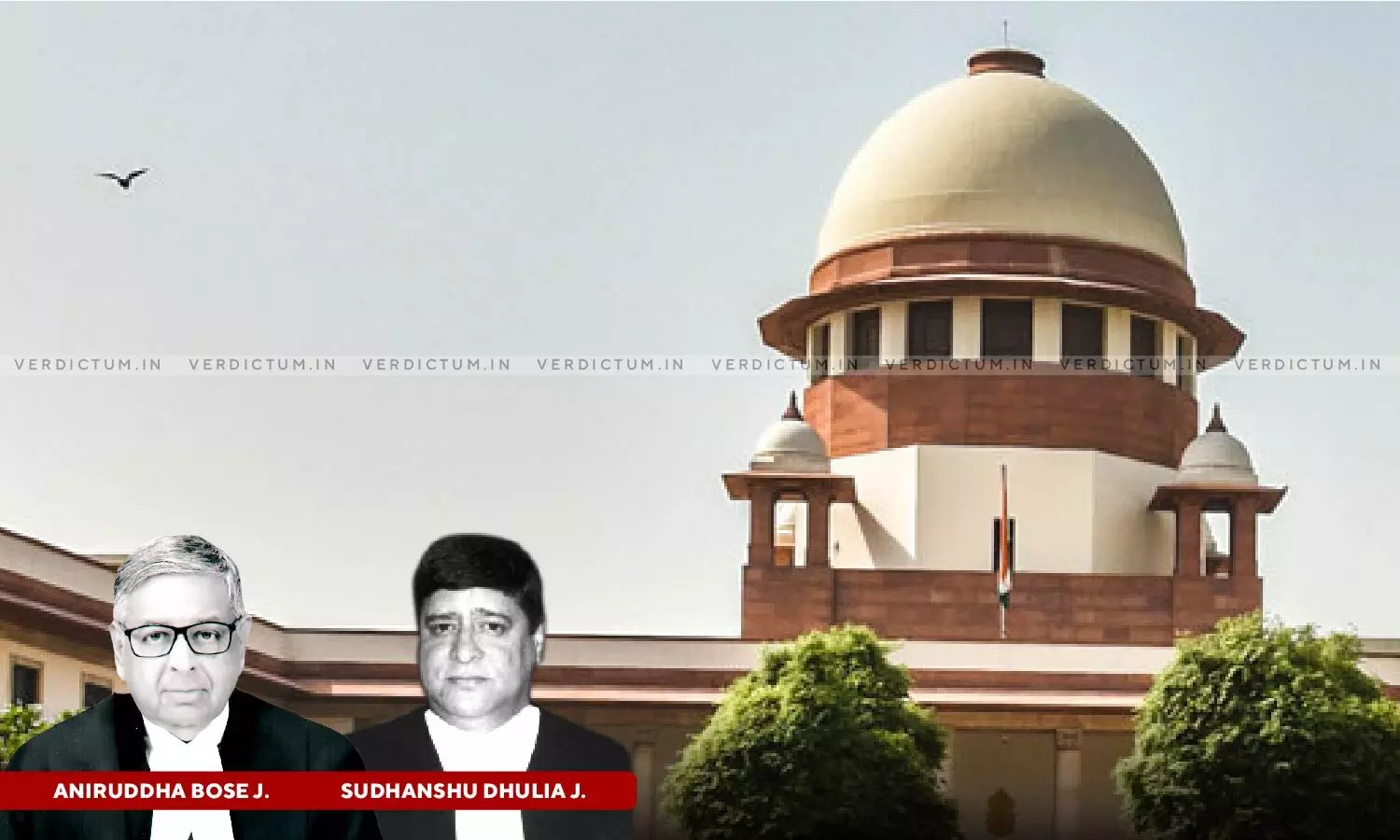
Private Agreements Cannot Be Enforced In Slum Rehabilitation Schemes: Supreme Court
 |
|The Supreme Court held that private agreements cannot be enforced in Slum Rehabilitation Schemes as it is against the mandate of the Slum Rehabilitation Authority (SRA).
The Court upheld the power and responsibility of the Slum Rehabilitation Authority to prioritize established policies and public trust over private agreements for flat allocation in a Slum Rehabilitation Scheme.
A Civil Appeal challenging the Slum Rehabilitation Authority's (SRA) decision on flat allocation in a Mumbai slum project was dismissed by the Apex Court.
The dispute arose from a developer's attempt to bypass legal requirements by excluding the SRA from a lawsuit and entering a private agreement with a minority resident group for specific towers. This private agreement, deemed invalid by the SRA, sought to circumvent the established lottery-based system for flat allocation.
The Bench comprising Justice Aniruddha Bose and Justice Sudhanshu Dhulia observed, “Private agreements cannot be enforced in Slum Rehabilitation Schemes as against the statutory mandate of the SRA”.
“Thus, SRA has to act in terms of its own policies and circulars without allowing private or contractual interests to prevail over public policy especially a policy which is welfare based”, the Bench added.
Advocate Rahul Kripalani appeared for the Appellant and Advocate Shrirang B. Varma appeared for the Respondent.
The Appellant, a minority resident group, appealed before the Supreme Court to quash a High Court order upholding the Slum Rehabilitation Authority's (SRA) allotment process in a Lower Parel slum project. This project, encompassing a total built-up area of 75,854 sq. m., aimed to rehabilitate 1765 slum dwellers through the construction of nine towers, commercial and recreational spaces, amenities, and community facilities. While some towers were completed and allotted, disputes and ongoing litigation stalled the remaining.
The Court acknowledged the stark reality of Mumbai's slums, contrasting them with the city's urban development. Mumbai's historical neglect of its slums, despite housing over 40% of the population, was attributed to colonial indifference and the limitations of early clearance-focused initiatives like the 1896 Bombay Improvement Trust. However, the post-independence era witnessed a shift towards slum improvement and rehabilitation, marked by the Maharashtra Slum Areas (Improvement, Clearance and Redevelopment) Act, 1971 ( Redevelopment Act) and the establishment of key authorities like the SRA.
The Court observed that the Lower Parel project faced challenges due to the internal conflict between the majority Federation overseeing it and a dissenting minority group, Sayunkta Sangharsh Samiti (SSS). The developer's attempt to bypass legal requirements by excluding the SRA from a lawsuit and entering a private agreement with SSS for specific tower development was deemed illegal. This private agreement contravened the SRA's established lottery-based allocation system mandated by Circular No. 162. The Court ultimately upheld the SRA's decision to allocate flats fairly to all eligible residents, emphasizing transparency, legal procedures, and majority consensus in slum rehabilitation projects.
The Court reaffirmed the SRA's authority and responsibility to act in the public interest, prioritizing established policies and circulars over private agreements, especially in welfare projects like slum rehabilitation. The Appellants' challenge to the allotment process, without contesting the validity of Circular No. 162, further invalidated their attempt to enforce the private agreement.
Accordingly, the Court dismissed the Appeal and directed SRA to allocate flats per established procedures.
Cause Title: Sayunkta Sangarsh Samiti & Anr. v The State Of Maharashtra & Ors. (2023 INSC 1080)
Appearance:
Appellant: Advocates Suhasini Sen, Ankit Yadav, Suparaja V., Prakriti Rastogi.
Respondent: Advocates Siddharth Dharmadhikari, Aaditya Aniruddha Pande, Bharat Bagla, Sourav Singh, Aditya Krishna, Raavi Sharma, Aniruddha Joshi, Shashibhushan P. Adgaonkar, Pradnya Adgaonkar, Pragya Baghel, Anil Rao, Sagar Ghogre, Vaibhav Ghogre, Amrendra Kumar Mehta.